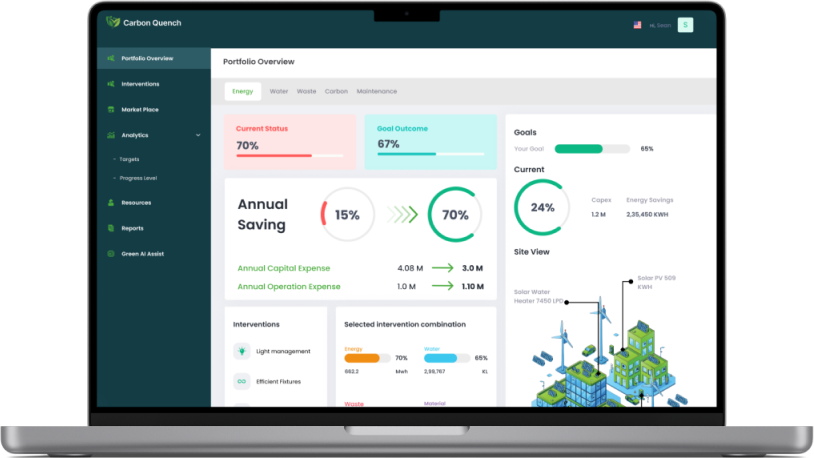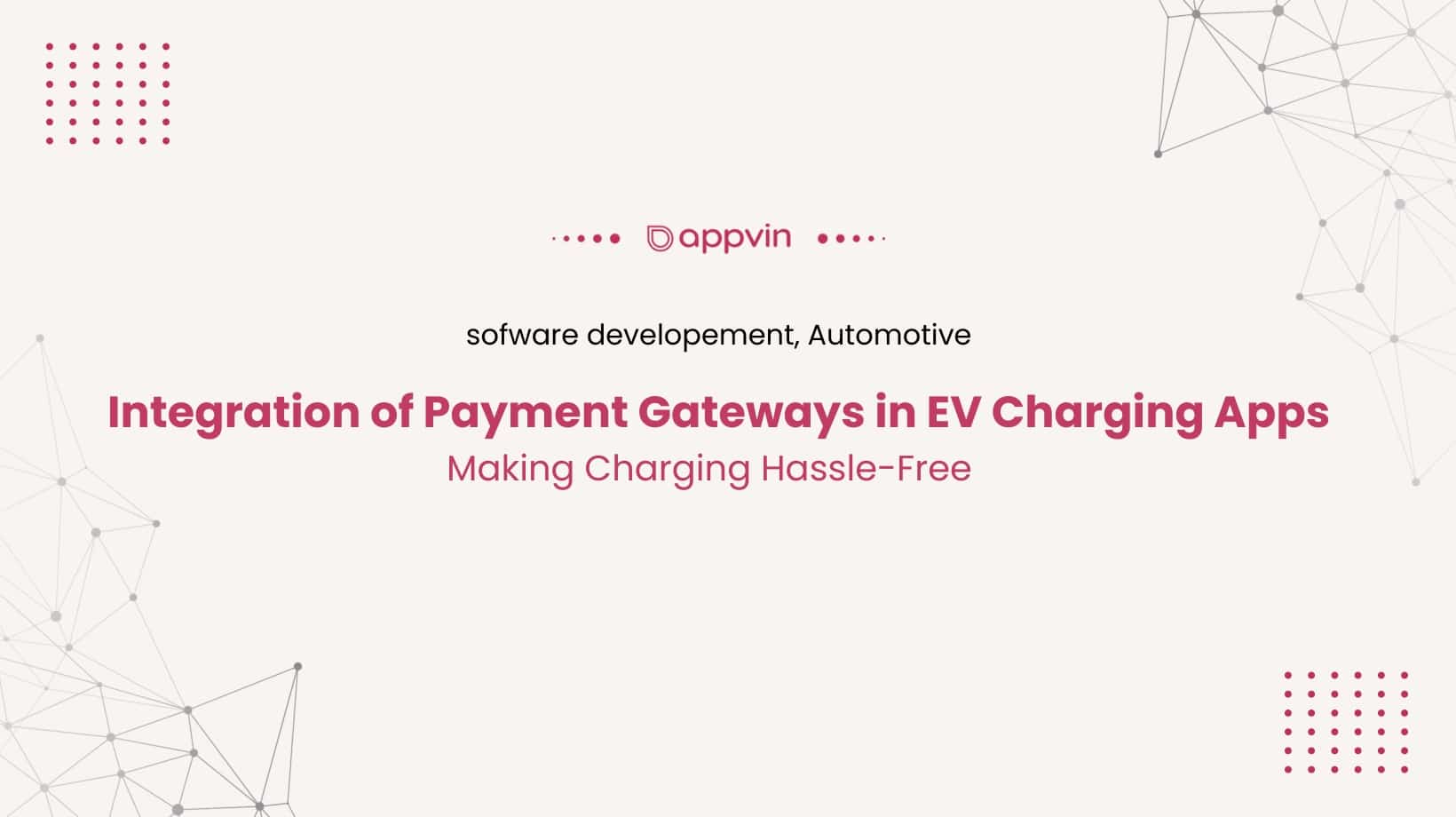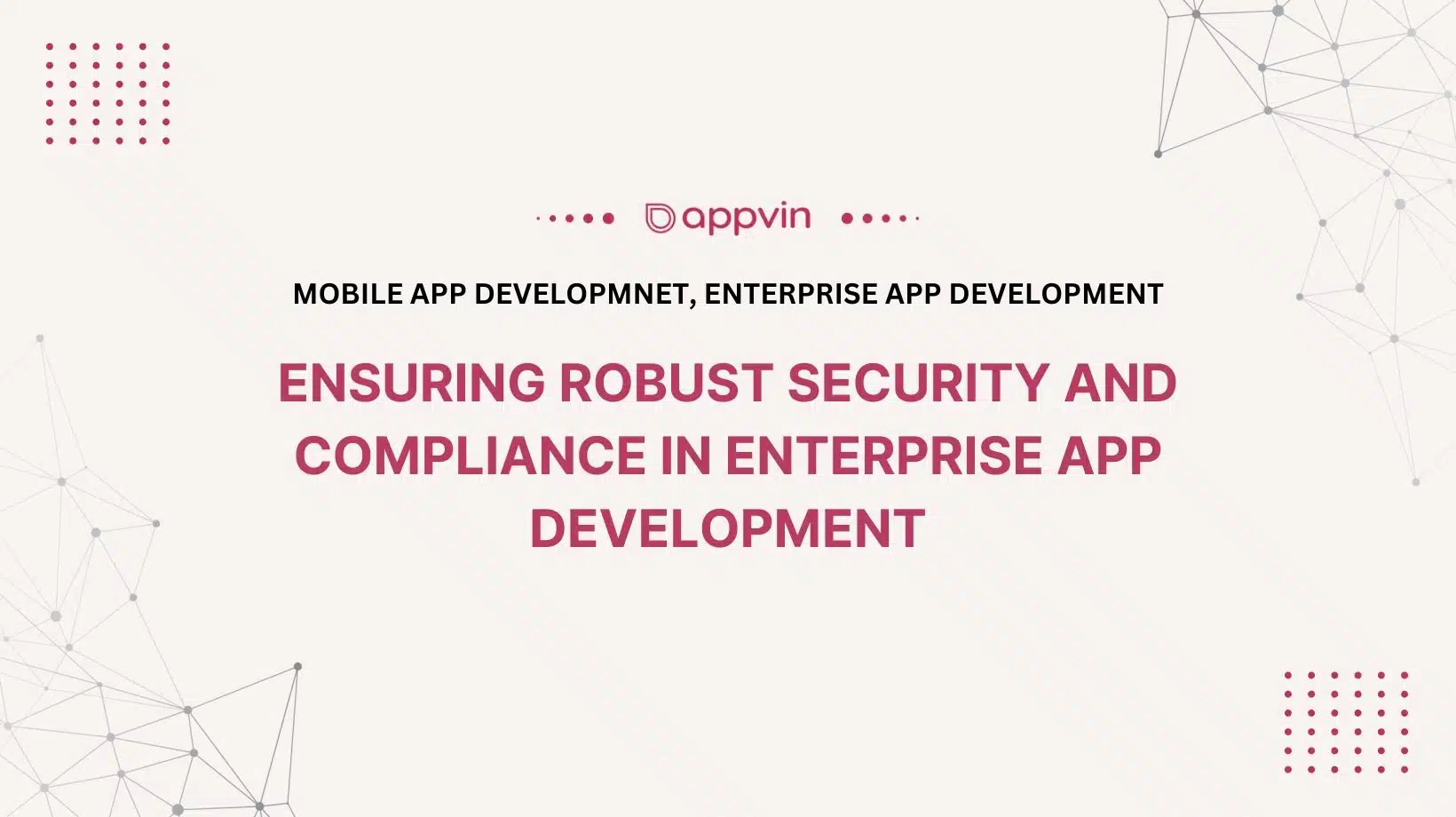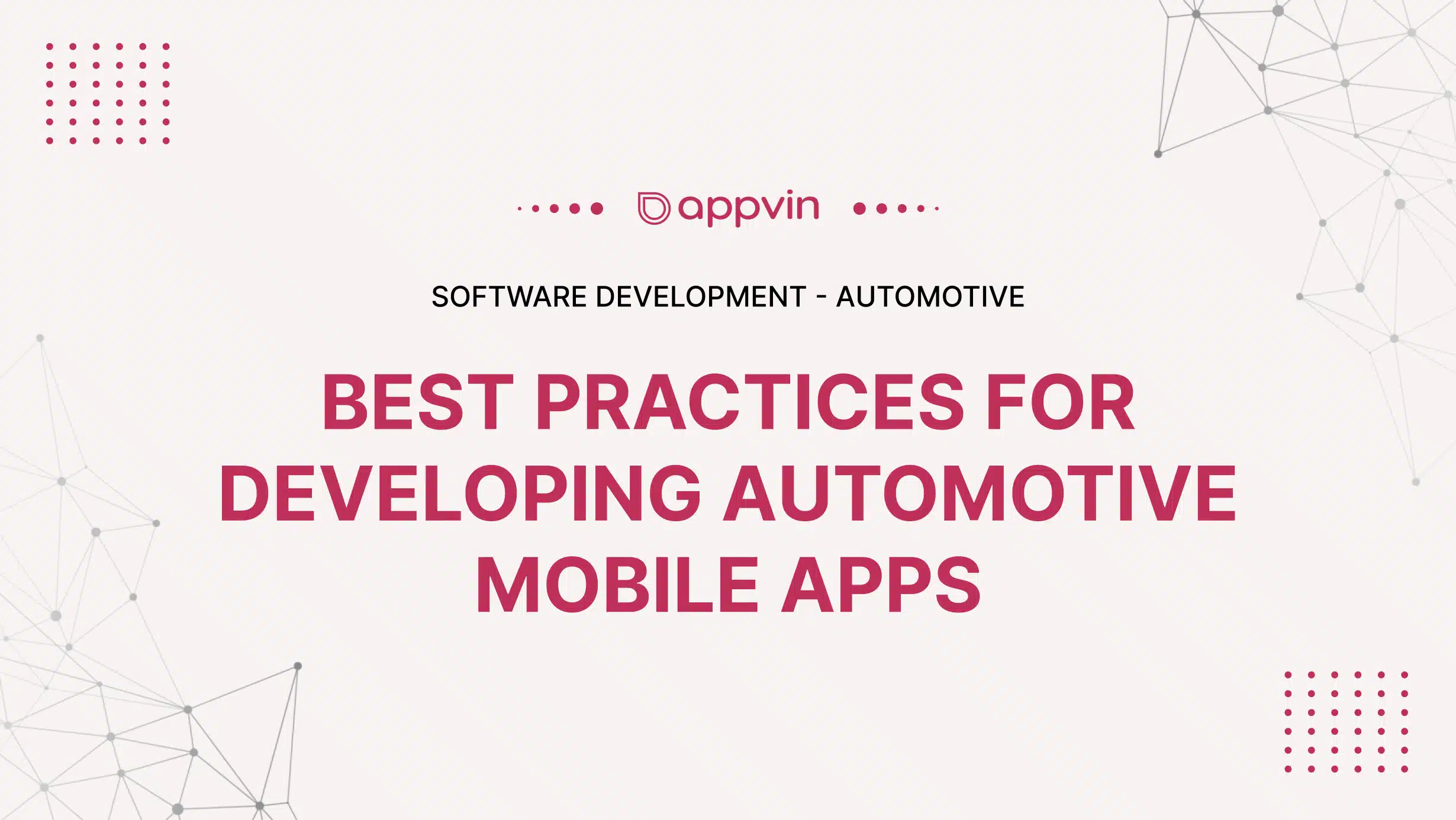Automotive mobile app development must balance intuitive design, seamless connectivity, robust security, and high performance to enhance the in-vehicle user experience. Driving innovation and intelligence, automotive software is at the heart of modern vehicles. It powers infotainment systems, navigation systems, and ADAS (advanced driver-assistance systems).
It shapes the driving experience, from engine controls to navigation and connectivity to vehicle safety features. Automotive software plays a critical role in integrating technologies such as autonomous driving, electric vehicle management, and more.
Developing automotive software is a complex process that requires engineering and coding. It requires reliability and efficiency, as well as the ability to adapt to changing conditions. As connected vehicles become more commonplace, so does cybersecurity.
The following are the trends in the automotive mobile app development:
Artificial intelligence and machine learning
It would be pretty weird if we didn’t mention Artificial Intelligence when we look at the most recent trends in mobile UI design.
Artificial Intelligence brings with it the idea of “Computational design.” In other words, your app interface can be created by an automated program instead of a designer.
In short, AI & machine learning can speed up your design process where you don’t have to worry about making huge changes.
The AI design programs have a clear goal of replicating the human decision-making process, so the results don’t have to vary too much. On top of that, AI is slowly making its way into UX design iteration.
Augmented reality and virtual reality
Augmented Reality (AR) has been one of the most popular mobile development domains for the past couple of years, and we still think it has a long way to go before it reaches its full potential.
AR is an augmented version of the physical world. It allows people to surround the digital content with the real world in real time. It gives users an interactive 3D experience by creating live images and sound in the physical world.
Blockchain technology
Blockchains have many uses in the automotive industry. There are only a few that connect vehicle data to a safe network for connectivity and sharing mobility apps such as urban transportation, ride-hailing, etc.
In addition, blockchain can verify the supply chain for spare parts, ensuring that they are procured from trusted, safe, and legitimate sources.
Cloud computing is revolutionizing mobile app development. It provides businesses with a scalable, flexible infrastructure. Cloud services enable businesses to store and process data from anywhere in the world. This frees up device resources and reduces the burden on businesses.
Cloud integration across multiple devices guarantees a consistent user experience. Cloud computing also allows for easy updates and maintenance as well as streamlined collaboration among development teams.
Big data and analytics
Predictive analytics predicts future events by measuring the current data. It combines modeling, statistics, AI, machine learning, and data mining strategies. Tech giants such as Facebook, Google, and Apple have already enhanced user journeys across their UX/UI through AI integration for the use of predictive analytics.
Big Data analytics in the healthcare sector is expected to reach USD 79.23 billion in 2028. There are currently more than 44 zettabytes in the entire digital world. Seventy percent of the world’s data is user-generated. Cloud computing end-user spending is around USD 500 billion per year.
When a vehicle generates big data, advanced data analytics informs the life cycle of the vehicle. The data collected from the vehicle can be used for predictive maintenance, alert authorities in case of an accident or an emergency, and notify fleet managers.
Automotive manufacturers can use predictive analysis to determine their annual sales buy and target production.
Internet of Things (IoT)
If you decide to go with a self-drive or even a peer-to-peer car rental business model, you can give the users the ability to request and authorize car access via the mobile app.
Only authorized members can unlock and lock the car via the mobile app, which will reduce the need for a physical key to unlock the car.
5G network connectivity
5G is one of the first things that come to mind. A 5G network delivers data quickly and efficiently. 5G has been around for a while now, but it is expected to become one of the most prominent trends in mobile app development in 2024 as it is expected that businesses will actively adopt it.
It will significantly improve the speed and efficiency of video apps by offering high-resolution ultra HD live streaming and integrating technologies seamlessly into the apps.
It helps large enterprises to share their huge amounts of data easily.
The main difference between 5G and 4G is speed, 5G has a speed of 10 times faster than 4G. 5G offers more opportunities for Augmented Reality (AR) and Virtual Reality (VR). It makes it easy to integrate AR and VR into apps.
Data transmission between devices will be much faster and smoother. Virtual payments will be secure, secure, and seamless. The process of biometrics for identification will be much faster because of the 5G network.
Autonomous Driving
A self-driving car is a car that can sense its environment and operate without human input. Self-driving cars do not require a human driver to operate them at all times, and they do not need a human passenger in the car at any time.
A self-driving car can drive anywhere a conventional car can, and it can do all the tasks that a human driver can do.
The global smart car revolution begins to take shape by self-driving cars replacing the term “biggest step”.
Conclusion
The automotive industry is in a state of rapid transformation, and mobile apps are at the core of this transformation.
As we all know, smartphones have become an integral part of our daily lives. As a result, automotive companies are increasingly investing in automotive mobile app development to improve user experiences, streamline operations, and stay ahead of the competition.
Mobile application development services are revolutionizing the way we interact with our cars. They are making our cars smarter, more productive, and more enjoyable. What’s even more exciting is how mobile apps are opening the door to new opportunities.
Now you can control your car’s functions from your smartphone, or get real-time notifications about your vehicle’s condition.







